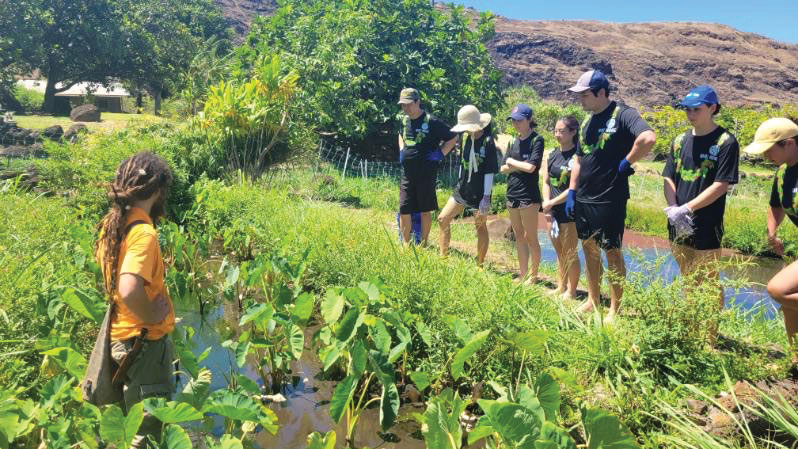Moku Mentors
During orientation week, students at the John A. Burns School of Medicine take part in a fun “sorting ceremony,” where they are welcomed into one of the institution’s six Learning Communities — groups they’ll stay with throughout their four years of medical school. To support their learning and professional growth, each student is paired with a dedicated mentor and a small group of peers.
“Our goal was to really attain a higher level of compassion, connection, and excellent communication,” says Dr. Kyra Len, co-director with Dr. Vanessa Wong of the Learning Communities.

The Learning Communities are based on the six moku (districts) of O‘ahu: Waialua, Wai‘anae, ‘Ewa, Kona, Ko‘olaupoko, and Ko‘olauloa. Each moku also includes two smaller groups, mauka and makai, which will sometimes combine and do activities together.
Within each moku, two mentors work with approximately 26 students across all four years. Mentor-student discussions cover topics such as clinical skills, professionalism, health system science, medical ethics, wellness and resiliency, and culture and community. Students also visit their assigned moku and take part in activities to learn about the place and the community.
Dr. Bradley Chun, a continuing care physician at Kaiser Permanente, who began as a Wai‘anae-makai moku mentor in January, says the experience is very rewarding. Kaiser Permanente is supporting his work by providing him with dedicated time to the role. "For me, this is ongoing, so I’m planning to continue as a moku mentor for the foreseeable future," Chun says. He adds that he and his students recently visited Ka‘ala Farms in Wai‘anae as part of their community engagement.
“I’ve been working with students my whole career, and I’ve had opportunities to take care of patients and teach students at the bedside, but this provides a different aspect of teaching, and I found it to be extremely rewarding,” says Chun. “It’s probably been the most rewarding thing that I’ve done in medical education so far.”